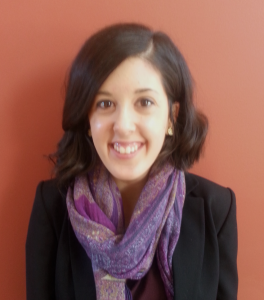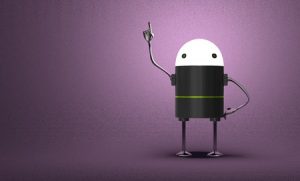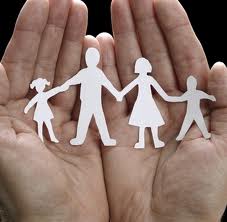 Kara Vasil, Class of 2016
Kara Vasil, Class of 2016
The University of Akron/NOAC
Picture this: You are in the sound booth, right in the middle of an audiologic assessment. A few missed head turns or latent ABR waves in, you realize that maybe these parents’ fear has been realized, and their child has a hearing loss. They’ve sat in your office, putting the puzzle pieces together of the child’s birth history, medical complications, and behaviors in the home. You now have concrete evidence, in the form of behavioral testing, an ABR, OAE’s, or whatever it may be. Now it is time to break the news to these parents that their child has a hearing impairment. Whether they are expecting it or not, you, the audiologist, have a job to do.
Despite coursework in pediatrics, counseling, and aural rehabilitation, many graduate student clinicians have never been in this situation. Even when evaluating pediatric patients of all ages and walks of life, the majority have not yet concretely identified and reported to parents a permanent, sensorineural hearing loss. As many clinicians would agree, I do not believe this is a skill that can be taught solely in the classroom. Some may feel that there has been a barrier between the clinician and the parent – what is appropriate to say, and what are these parents thinking about when they leave the office and return home with their child?
Learning from the True Experts
This past semester, that barrier crumbled a bit. In a pediatric amplification course, my professor, Dr. Mark Krumm, brought in four parents of children with hearing loss. These parents were all from the local area and had met in a support group. Their children had sensorineural hearing loss of varying degrees and were treated with hearing aids and cochlear implants, technology that I consider myself quite familiar with. However, one thing I do know is that it’s not about the technology. Hearing these parents’ testimonials about their relationships with their audiologists, their children, and their families was a truly eye-opening experience. The experience reminded my entire class that the parents of our pediatric patients are trying their best and have heartfelt compassion for their kids, and, no surprise – they know their children a whole lot better than we do. These parents know what makes their children tick, they know what the technology will and will not accomplish in their home, and they also probably know their audiologist’s cell phone number for when they will inevitably need it.
The parents who visited my class talked about the desire for a trusting, collaborative relationship with their audiologist, with referral to the appropriate professionals when we just don’t have all of the answers. An article published in the American Journal of Audiology confirmed these statements; parents and caregivers want their voices to be heard, and they want their child’s treatment implemented in a coordinated and professional manner. Fitzpatrick, et al. (2008) interviewed 21 parents about the strengths and weaknesses of the standard audiologic care system. Although most parents were satisfied with the range of services provided and the quality of services, they did have a few suggestions for us to consider. Family-centered care and a high level of support have been linked with higher rates of follow-up, better participation in early intervention services, and ultimately improved outcomes for the child.
 Two Things Click
Two Things Click
After listening to these parents on that otherwise-average Wednesday, two insights have stuck with me.
- The clinician leaves the office at the end of the day and may not communicate with the family until the appointment nears. In the meantime, parents, family member and caregivers spend most waking hours with the child every day! And those hours can be “messy.” Children and their parents need breaks from the technology sometimes. They will likely lose a hearing aid or two. Earmolds will need to be remade routinely. Children get sick, teeth, and have bad days, which impacts amplification use. Families need their audiologist to provide not only information, but empathy for those challenges.
- One mother became emotional while talking to our class. She reported that, yes, hearing aids do sometimes get wet, and children do sometimes get hurt while playing sports. But what kind of childhood would their son or daughter have if they were kept from participating in all of the activities that they loved? Gymnastics, swimming, volleyball, horseback riding, and simply playing in the backyard are all activities that typically hearing children participate in; why should a child with hearing aids or cochlear implants behave any differently?
If we as audiologists can recognize a family’s unique needs, we can ensure the child obtain not only access to all of the necessary auditory stimuli but also access to healthcare professionals, educators, and other families. If and when problems do arise, they will become that much easier to solve when the family-audiologist relationship is built on mutual trust and understanding.

Reference
Fitzpatrick, E., Angus, D., Durieux-Smith, A., Graham, I.D., & Coyle, D. (2008). Parents’ needs following identification of childhood hearing loss. American Journal of Audiology, 17, 38-49.
